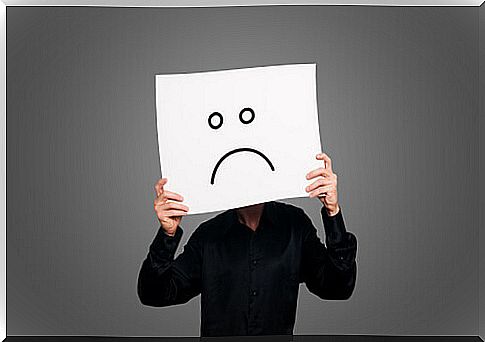Realist Or Pessimist? Find Out Who You Are

Have you ever been told that you are pessimistic? If the answer is yes, but you disagree and want to know if the arguments they have listed are valid, this article is for you. Many times there is confusion between being a realist and being a pessimist, but they are two very different personality characteristics that give rise to misunderstandings. What kind of person are you?
First of all, it is important to know that the tendency to see the negative side of situations is normal and has an evolutionary and adaptive reason behind it: to protect us from what can potentially hurt us. In other words, for our psychological system of protecting ourselves it is more interesting to know what goes wrong and what can harm us, rather than identifying the aspects that are good and benefit us. However, when a person sees only the negative side of what happens to him, he becomes pessimistic and the adaptive function of detecting the “negative” results in a problem, in a ballast for his mood.
At the same time, it should be emphasized that there is a middle point between being pessimistic and being optimistic (see all roses and flowers), this middle point is realism. To help you understand the differences between realism and pessimism, and to find out which profile you correspond to, we will explain each of these concepts below.

What is a pessimistic person like?
When a person is pessimistic, he has a cognitive distortion (an error) that the psychologist Aaron Beck called selective abstraction. In other words, through this distortion pessimistic people notice and retain only a certain type of information: negative ones. A pessimistic person, therefore, notices and remembers only negative information. Many times, without realizing it, they filter the information and evaluate in detail only those of a negative type.
On the other hand, if in your case you identify with pessimism and believe that you frequently commit this cognitive error, do not be embittered! This error can be fixed. There are psychological techniques, whose scientific validity has been demonstrated, such as cognitive restructuring or cognitive fusion that help people detach themselves from thoughts and realize the error, and then modify these psychological automatisms and negative thoughts.
To find out if you are pessimistic or realistic, you have to take into account that pessimistic people, when faced with a difficulty, anticipate the worst outcome, without necessarily being the most likely. In other words, they place their negative expectations “in what is to come”.
In this sense, being pessimistic (in part) is due to having a personality that is basically anxious. We are talking about people with a high level of “trait anxiety” and who therefore see life in a negative way. When a person is pessimistic, he unconsciously tends to impose limits on himself, to think of the worst and to be more sensitive to uncertainty; which results in “expecting the worst to be prepared”.
Furthermore, there is a key aspect to take into account if you want to know what kind of person you are: if you are pessimistic, you automatically tend to see the negative aspects, even in positive events and situations in your life. In other words, pessimistic people dwell on what has failed perfectly or what has gone wrong even when they have not tried or worked too hard to reach a goal or a project but still managed to achieve it successfully. If you are pessimistic, you have a hard time enjoying your victories because you lose yourself by focusing too much on what could have been better.

So … what is a realistic person like?
First, the most distinctive feature of realistic people is that they are not used to anticipating value judgments. In other words, they wait to see how the facts unfold to assess a given situation, what they expect to happen and, once they have real data, they make a judgment (for example: “this is fantastic” or “it doesn’t go at all. Well”). In this way, realistic people maintain a more neutral position in the moments preceding the development of events and are able to have more consistent expectations from their events.
At the same time, a realistic person prepares not only mentally for what could go wrong (taking into account objective facts), but also to enjoy what could go well. In other words, they are ready for almost any result, they know how to enjoy their successes and they are also prepared for their failures: this does not prevent them from trying to reach their goals, nor distracts them from their path.
At this point, you will realize that a realistic person is not catastrophic and more adequately evaluates the positive and negative aspects of situations and problems. This ability to evaluate situations is one of the most distinctive characteristics of realistic people.
Finally, if you have realized that you are pessimistic, it is important that you remember that a psychologist can help you change the aspects of your personality that prevent you from evaluating the events of your life in an objective and thoughtful way, at the midpoint that we have. mentioned earlier, without making catastrophes or selective abstractions based on the information you receive. Trying to change on a personal level towards realism can be a great destination for years to come, what are you waiting for?









